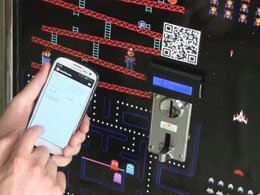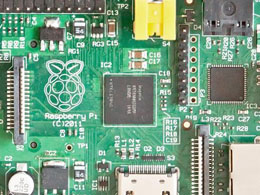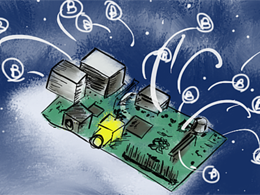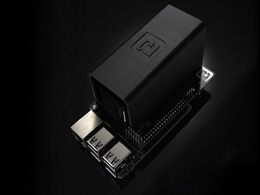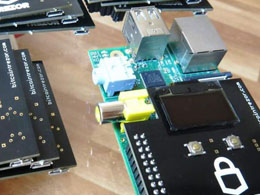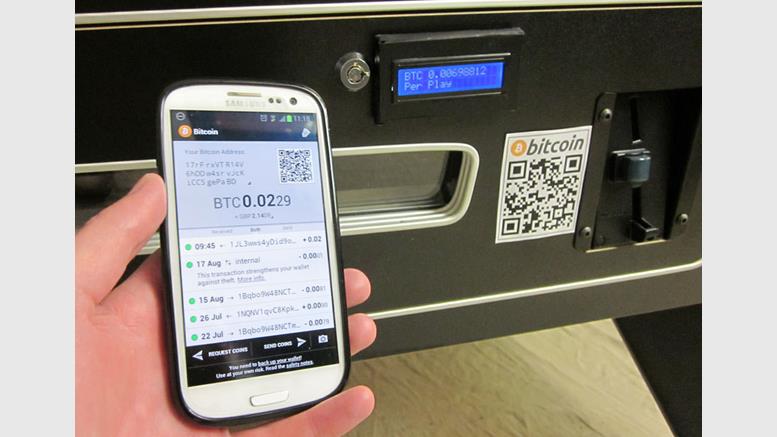
Raspberry Pi used in new bitcoin-operated pool table
Games room specialist Liberty Games has created a bitcoin-operated pool table that runs on Raspberry Pi. Next to the table's traditional coin slot, there is a QR code and an LCD screen, which displays the price per play in bitcoins. Users simply scan the QR code and send the displayed amount to the owner's bitcoin wallet address. The machine then automatically tips the balls out - they don't have to be manually released. Stuart Kerr, technical director at Liberty Games, said he decided to give the idea a try after reading CoinDesk's article 'Will bitcoin ever be used for gas pumps, parking....
Related News
The games room specialist that developed a bitcoin-operated pool table has released its arcade machine equivalent. Liberty Games, based in the UK, has developed a method of retrofitting arcade machines so that gamers can play with bitcoin rather than a bag full of metal coins. The company's technical director Stuart Kerr said an arcade machine can be fitted with a Raspberry Pi, a simple credit-card sized computer, and other components so that gamers can send bitcoin to the machine owner's wallet. The method is similar to the one used by Liberty Games to outfit pool tables to accept....
For less than the cost of a Trezor Bitcoin Wallet, you can run a full Raspberry Pi Bitcoin node and help support the Bitcoin network. All you need is a Raspberry Pi model B or B+, a 32GB SD card and an Internet connection. Total cost: about $50. The Raspberry Pi isn't like your desktop/laptop that most likely run on Intel or Apple hardware architecture. Raspberry Pis run on ARMs - an embedded architecture used by almost every smartphone. Just like a smartphone, the Raspberry Pi cannot use a desktop or laptop operating system. Luckily, many ARMs versions of Linux exist that work very well....
Raspberry Pi is a series of credit card-sized single-board computers distributed by RS Components, Egoman and Newark Element14. Based on the Broadcom BCM2835 system on a chip (SoC) which includes VideoCore IV GPU and 1GB ram, the Raspberry Pi 2 can be connected to any LCD/LED via HDMI, a keyboard and a mouse to operate as a fully operational computer on various operating systems such as Windows 10 and Linux (Ubuntu). The Raspberry Pi was released in February 2015 and has been sold for a fixed price of US$35 worldwide. Due to its economical advantages and portability, the single board....
Ever since the Bitcoin computer by 21 Inc has been released, various community members have been very vocal about how expensive this device is. Especially when taking into account what the Bitcoin computer does, any owner with a Raspberry Pi 2 can replicate the concept. Or that is what one Reddit user believes, at last, although it remains to be seen whether or not this idea will work. At its core, the Bitcoin Computer created by 21 Inc seems to be nothing more than just another Raspberry Pi 2 clone with some proprietary software. The question then becomes why this Bitcoin computer should....
The team behind Trezor has announced an accessory for the Raspberry Pi that will turn it into a, somewhat chunky, Trezor wallet. Trezor is a dongle-sized computer that can be used to hold private keys and sign transactions. The project is still in its early days and its developers have made it open source so that anyone can build their own implementation of a Trezor wallet. The Raspberry Pi Shield is a circuit board that is added to the Raspberry Pi that presents the same interface as a Trezor wallet device. That is, two hardware keys and a small OLED screen. From the photos on the Trezor....

